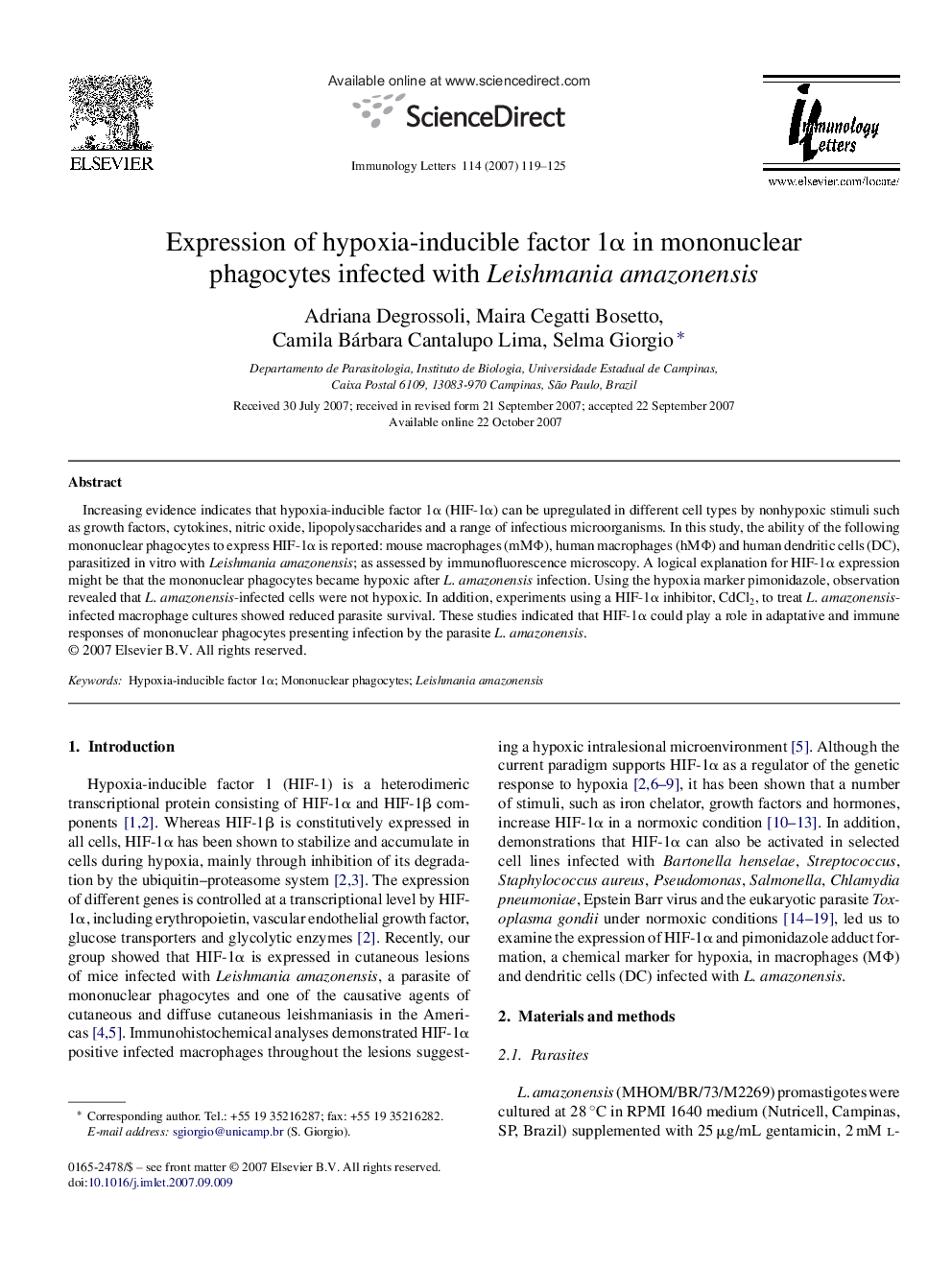| Article ID | Journal | Published Year | Pages | File Type |
|---|---|---|---|---|
| 3356289 | Immunology Letters | 2007 | 7 Pages |
Increasing evidence indicates that hypoxia-inducible factor 1α (HIF-1α) can be upregulated in different cell types by nonhypoxic stimuli such as growth factors, cytokines, nitric oxide, lipopolysaccharides and a range of infectious microorganisms. In this study, the ability of the following mononuclear phagocytes to express HIF-1α is reported: mouse macrophages (mMΦ), human macrophages (hMΦ) and human dendritic cells (DC), parasitized in vitro with Leishmania amazonensis; as assessed by immunofluorescence microscopy. A logical explanation for HIF-1α expression might be that the mononuclear phagocytes became hypoxic after L. amazonensis infection. Using the hypoxia marker pimonidazole, observation revealed that L. amazonensis-infected cells were not hypoxic. In addition, experiments using a HIF-1α inhibitor, CdCl2, to treat L. amazonensis-infected macrophage cultures showed reduced parasite survival. These studies indicated that HIF-1α could play a role in adaptative and immune responses of mononuclear phagocytes presenting infection by the parasite L. amazonensis.
